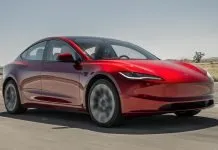Samsung has recently unveiled a groundbreaking advancement in electric vehicle (EV) battery technology: a solid-state battery that would allow 600 miles between charges and recharge to 80% in only 9 minutes. Today, Samsung seeks to place itself at the forefront of the automotive revolution through this announcement at the SNE Battery Day 2024 Exhibition held in Seoul, South Korea.
Key Features of Samsung’s Solid-State Battery
The solid-state battery technology developed by Samsung boasts several remarkable features:
Extended Range: One of the primary concerns of consumers of electric vehicles is the battery range length; this battery has a range of up to 600 miles. Today’s mainstream EVs provide ranges of around 270 miles, making Samsung’s offering almost twice as much.
Rapid Charging: Imagine rapid battery capacity charging from 10% to 80% in just 9 minutes! This fast-charging look would cut the periods drivers had to spend recharging their cars, making electric vehicles better suited for long-distance use.
Longevity: Samsung says that its solid-state battery can last up to 20 years- a much longer time than lithium-ion batteries. This not only helps cut the cost of battery replacement, which when done more frequently by other manufacturers devalues the overall worth of the device to the user.
High Energy Density: In a new battery, an energy density of 500 Wh/kg has been set, which is about two times larger than that in lithium-ion batteries. This improved energy density is not only good for the extended range but will also enhance the battery’s small size and weight.

Technological Advantages
Compared to the lithium-ion batteries that require flammable liquid electrolytes, Samsung’s new batteries are based on solid electrolytes. This design minimizes some of the dangers of overheating and potential fire mishaps, which have been inherent in the previous generations of batteries.
The solid-sulfide chemistry used in these batteries is claimed to be stable and efficient, which makes it a good candidate for a range of EV applications.
Market Implications
It should also be noted that the further Samsung develops, the more possible it is to challenge conventional standards in the industry. As competitors tighten their belts with new models including Tesla and BYD advance, Samsung’s advantages show its competitive edge with range, charging time, and safety features.
For instance, the latest Tesla Model Y has a range of approximately 320 miles on a single charge; when using the best charging options available, it still takes time longer than what Samsung proposes.
However, it is worth mentioning that the first application of these batteries might be grossed up in the ‘super premium’ segment the electric vehicles because of the high manufacturing cost. Samsung is planning to offer it in mass by 2027 with first development samples already shipped to automobile makers for testing.
Future Developments
Samsung is not only investing in solid-state technology but also in lithium iron phosphate (LFP) batteries and cobalt-free batteries as well. They intend to extend the utilization of commercial superior battery technologies to many segments of the market without compromising the cost.
Summing up, it is possible to note that Samsung’s challenge the solid-state battery technology is a severe breakthrough in EVs. The potential benefits of this innovation include increased range, shorter charging time, and longer product life cycle therefore this innovation has the potential of setting a new industry standard for consumers and effectively bringing on a revolutionized use of electric cars in the world.
To that end, innovations such as Samsung’s report are essential in charting the future of the automotive business and the transition to eco-friendly mobility platforms.



















Ha ha Toyota!